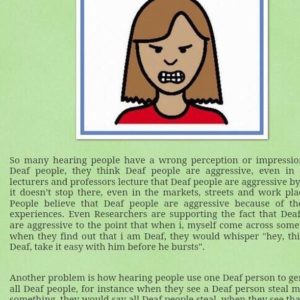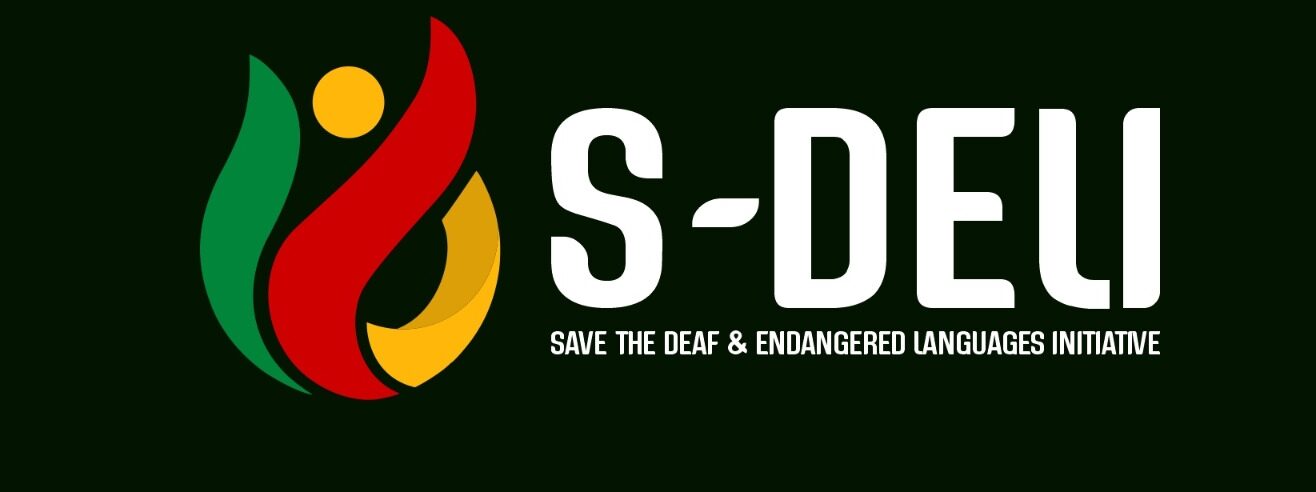“Are Deaf People Aggressive?”
I ran into this article with the above title on social media @saminterpreter.
“So many hearing people have a wrong perception or impression about Deaf people, they think Deaf people are aggressive, even in schools, lecturers and professors lecture that Deaf people are aggressive by nature…. Even Researchers are supporting the fact that Deaf people are aggressive…”
many hearing people have a wrong perception or impression about Deaf people, they think Deaf people are aggressive, even in schools, lecturers and professors lecture that Deaf people are aggressive by nature…. Even Researchers are supporting the fact that Deaf people are aggressive…”
I was therefore moved to drop this piece. There is no research evidence to support the claim that D/deaf people are aggressive in nature or become aggressive because they are deaf, but there is a huge evidence of society-imposed aggression among the Deaf, especially in societies such as Nigeria, where Deaf stigmatization strives, sustained by different cultural and religious practices and beliefs. In our recent work, Asonye and Rarrick (2017), society-imposed unwellness is evident in deaf communities in Nigeria and Papua New Guinea, but much more in Nigeria, where the Deaf are in the position of the most vulnerable among PWDs.
Studies have shown that children with the experience of early abandonment or early exposure to violence exhibit signs of post-traumatic stress disorders similar to those of children born in war-torn environments. Our studies on the other hand show that over 90% of deaf children with hearing parents (and hearing siblings) in Nigeria are marginalized and abandoned, many of whom live with similar stress disorder, aggression and depression, factors that are sustained at virtually every stage of their lives by social stigma. Resilience, (a person’s) ability to cope with unhealthy or dangerous environment has been linked to certain factors, including “a stable, emotional relationship with at least one parent or other significant adult; an open, supportive educational climate and parental model of behavior that encourages constructive coping with problems” (Garbardino et al, 1992). Unfortunately, many deaf children and adults lack some or all of these experiences that support resilience.
Since 2013, we have studied at least 31 deaf communities in Nigeria, comprising inclusive and special schools for the Deaf and associations, and the following data cut across:
- Over 90% deaf individuals were born by hearing parents.
- About 1.8% hearing parents can sign or at least attempt to.
- About 3% hearing siblings can sign.
- Over 90% deaf individuals had late entrance to school (i.e. from 8-12yrs of age).
- Less than 2% hearing teachers that teach deaf students (with Special Ed training) can sign.
- Over 86% deaf adults in Lagos alone are unemployed.
- About 80% of the above have only elementary and secondary school certificates.
The fact goes on and on, pointing at factors that have sustained a state of aggression, unwellness among the Deaf in Nigeria. Meanwhile, the perception of aggression has become a two-way traffic, as an average deaf individual has little or no trust on the non-signing hearing people. However, this whole situation can change with a change of attitude, especially among the hearing towards the deaf, from the onset of realization of hearing loss. The much-needed Early Intervention Program with Newborn Hearing Screening cannot be overemphasized in creating an inclusive society for the deaf and hearing. Whatever you think is not right about the Deaf is a reflection of whatever is not right about the society, where the Deaf belongs. The Deaf are not aggressive in nature, rather exhibit evidence of society-imposed aggression.
